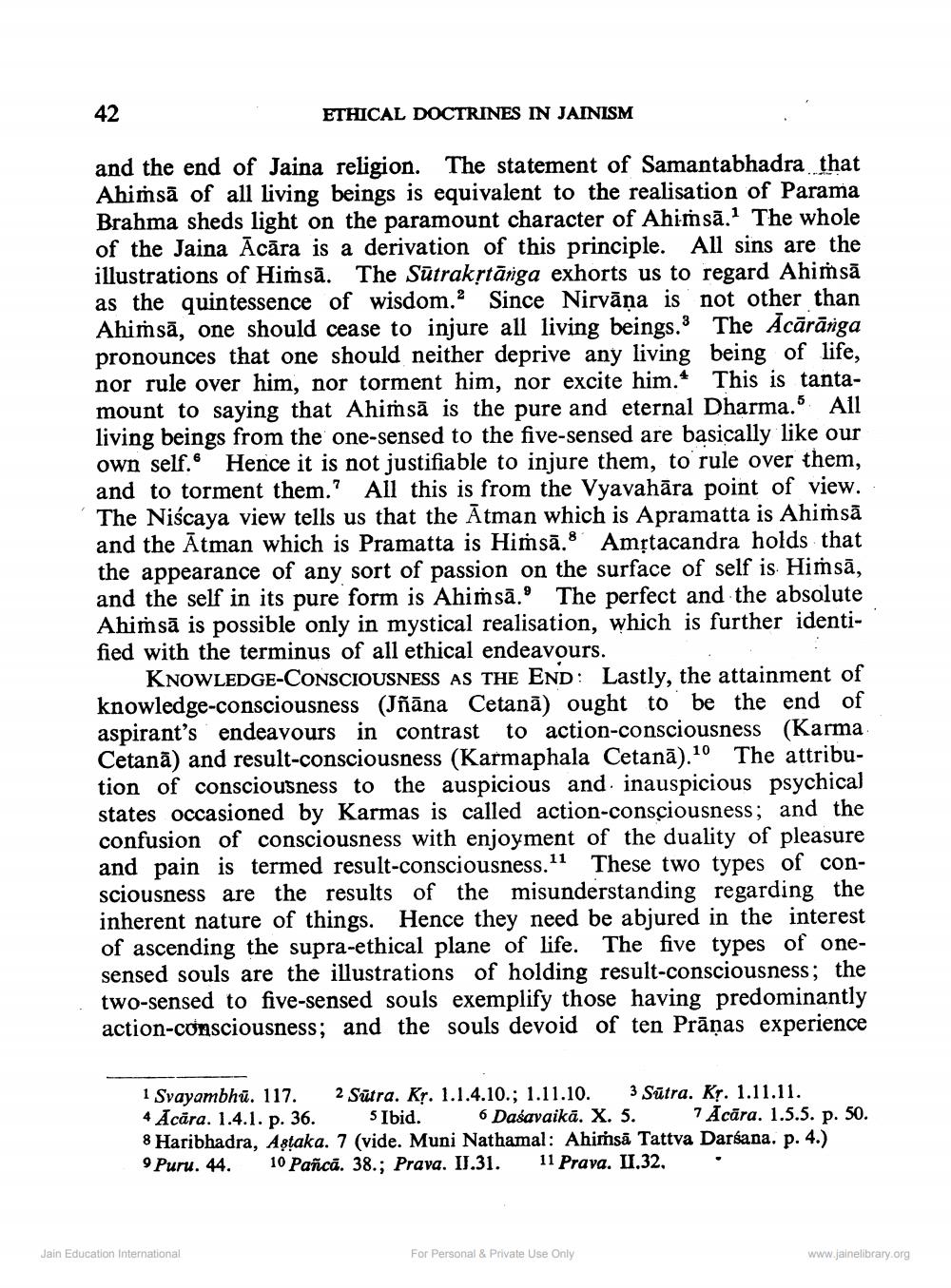________________
42
ETHICAL DOCTRINES IN JAINISM
and the end of Jaina religion. The statement of Samantabhadra that Ahimsa of all living beings is equivalent to the realisation of Parama Brahma sheds light on the paramount character of Ahimsa.1 The whole of the Jaina Acara is a derivation of this principle. All sins are the illustrations of Himsa. The Sutrakṛtānga exhorts us to regard Ahimsa as the quintessence of wisdom. Since Nirvana is not other than Ahimsa, one should cease to injure all living beings. The Acārānga pronounces that one should neither deprive any living being of life, nor rule over him, nor torment him, nor excite him. This is tantamount to saying that Ahimsa is the pure and eternal Dharma.5 All living beings from the one-sensed to the five-sensed are basically like our own self. Hence it is not justifiable to injure them, to rule over them, and to torment them." All this is from the Vyavahāra point of view. The Niścaya view tells us that the Atman which is Apramatta is Ahimsa and the Atman which is Pramatta is Himsā.8 Amṛtacandra holds that the appearance of any sort of passion on the surface of self is Himsā, and the self in its pure form is Ahimsa." The perfect and the absolute Ahimsa is possible only in mystical realisation, which is further identified with the terminus of all ethical endeavours.
7
KNOWLEDGE-CONSCIOUSNESS AS THE END: Lastly, the attainment of knowledge-consciousness (Jñāna Cetana) ought to be the end of aspirant's endeavours in contrast to action-consciousness (Karma. Cetana) and result-consciousness (Karmaphala Cetana).10 The attribution of consciousness to the auspicious and inauspicious psychical states occasioned by Karmas is called action-consciousness; and the confusion of consciousness with enjoyment of the duality of pleasure and pain is termed result-consciousness.11 These two types of consciousness are the results of the misunderstanding regarding the inherent nature of things. Hence they need be abjured in the interest of ascending the supra-ethical plane of life. The five types of onesensed souls are the illustrations of holding result-consciousness; the two-sensed to five-sensed souls exemplify those having predominantly action-consciousness; and the souls devoid of ten Prāņas experience
1 Svayambhu. 117. 2 Sutra. Kr. 1.1.4.10.; 1.11.10. 3 Sutra. Kr. 1.11.11. 4 Acara. 1.4.1. p. 36. 5 Ibid. 6 Daśavaikā. X. 5. 8 Haribhadra, Aṣṭaka. 7 (vide. Muni Nathamal: Ahimsa Tattva Darśana. p. 4.)
7 Acara. 1.5.5. p. 50.
9 Puru. 44.
10 Pañcă. 38.; Prava. II.31. 11 Prava. II.32.
Jain Education International
For Personal & Private Use Only
www.jainelibrary.org




